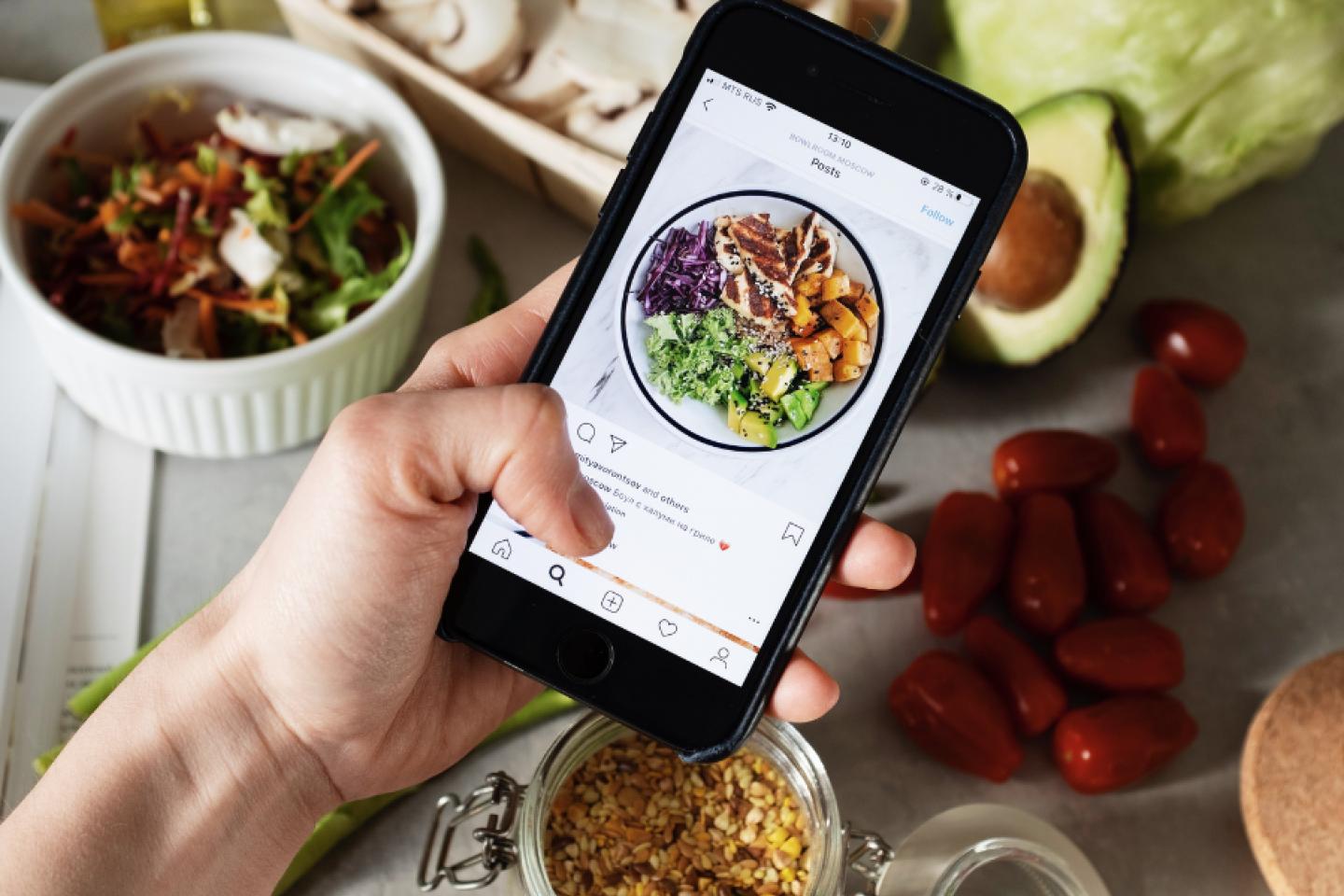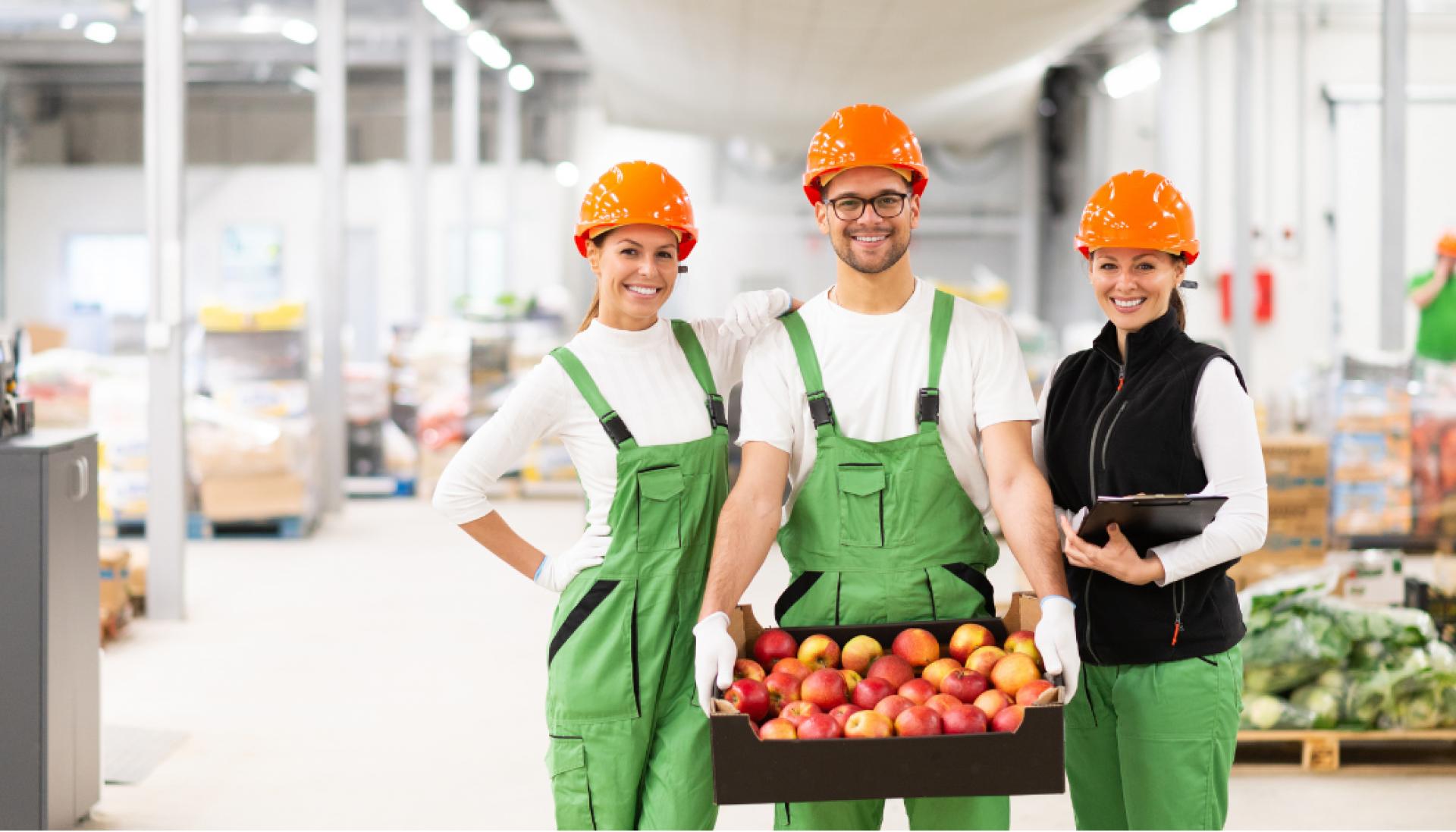Historically, B2B companies in this sector have been slow to adapt to digital and e-commerce tools. But now, it’s rapidly catching up. In this blog, we’ll explore the trends driving this revolution and shaping the future of the F&B market, and how celebrity endorsements are helping to push it forward.
Digital Transformation for Efficiency and Agility
Rising energy costs and supply chain disruptions are putting F&B companies under pressure to operate more efficiently than ever before. Fortunately, digital tools like automated inventory management, predictive analytics, and cloud-based platforms are giving businesses the power to manage these challenges more easily. For example, adopting composable commerce systems that integrate multiple digital services into one framework allows companies to build more flexible and cost-effective operational models.
But this digital transformation isn’t just about keeping up. It’s about thriving in a competitive landscape. By streamlining everything from supply chains to customer communications, companies can deliver more personalized experiences and respond faster to market changes. As noted in red-hot trends for 2024 blog, agility is key; especially when health-conscious and eco-conscious consumer preferences are evolving at such a fast pace.
Composable Commerce: the Key to F&B Flexibility
Flexibility is the name of the game in the F&B sector, and composable commerce is the tool that’s helping companies adapt. This modular approach lets businesses mix and match digital services, such as payment gateways, logistics management, and CRM systems, into one cohesive experience that can be customized to meet the needs of their customers.
With this newfound agility, companies can begin to explore and adopt direct-to-consumer (D2C) models more effectively. Rather than relying just on traditional retail channels, B2B companies are shifting to engage consumers directly. Whether that’s through online marketplaces, their own websites, or even social media storefronts, the flexibility of composable commerce is making it easier to roll out these strategies and adapt on the fly.
D2C Models: Breaking Down Barriers
The pandemic brought the D2C model to the forefront in many industries, but in the food and beverage sector, it’s been a game-changer. With traditional B2B channels like supermarkets and wholesalers being disrupted, companies quickly realized the value of going straight to the consumer. By adopting D2C strategies, these businesses are able to both diversify their revenue streams and also gain more control over their brand narratives.
During the pandemic, we saw brands like Impossible Foods and Beyond Meat rapidly adopt this model, reaching health-conscious consumers directly through their websites and delivering products straight to their doorsteps. As reported in our insights on versatile health foods, this strategy aligns perfectly with the demand for plant-based and organic alternatives. B2B companies that adopt this approach stand to capture both B2B and consumer markets, offering flexibility that was previously out of reach.
The Role of Celebrity Endorsements in the F&B Market Revival
Now, let’s talk about star power. In recent years, A-list and B-list celebrities have become significant influencers in the F&B industry. From Beyoncé advocating for plant-based diets to Dwayne "The Rock" Johnson promoting his tequila brand, celebrities are shifting consumer preferences in powerful ways. And though celebrity endorsements are nothing new, these partnerships offer brands not just visibility, but credibility in a crowded market.
How A-List Celebrities Are Shaping Consumer Preferences
There’s no denying that when a major celebrity backs a product, it generates buzz. For instance, Beyoncé’s endorsement of plant-based eating has put the spotlight on vegan and sustainable products. But while celebrity endorsements can create mass awareness, they don’t always translate directly into sales. Why? Well, high-profile partnerships are costly, and while they attract attention, they often don’t build the deeper trust that drives long-term customer loyalty.
That’s why companies need to balance star-studded partnerships with strategic marketing and authentic brand storytelling. Big names are great for raising awareness, but for many brands they simply aren’t affordable. And the journey from awareness to conversion requires more targeted and sustained engagement.
How B-List Celebrities Are Nurturing B2B and D2C Growth
Enter B-list celebrities and micro-influencers. These lesser-known figures, who often operate in niche markets like health and wellness, are making waves in the B2B and D2C spaces. Because they tend to be seen as more relatable and authentic, they are often more effective at driving actual sales. Consumers trust them because their endorsements feel genuine, not just transactional.
Studies show that micro-influencers can drive up to 60% more engagement than their mega-famous counterparts. Their loyal followings are highly engaged and more likely to act on recommendations, especially in the health-conscious and eco-friendly product categories. For B2B companies, working with these influencers can open doors to new B2C opportunities while strengthening existing B2B relationships.
Health-Conscious Marketing and Aligning with Consumer Trends
The rise of health-conscious marketing aligns perfectly with this celebrity-driven trend. Consumers today are not only more informed but also more focused on sustainability, gluten-free options, and plant-based diets. As Biz Insights reports, health-conscious consumers are reshaping how businesses approach marketing, product development, and distribution.
Both A-listers and B-listers are making the most of this trend, promoting products that align with these consumer values. Their endorsements lend legitimacy to emerging trends, making it easier for brands to break into new markets. Whether it’s plant-based meats, gluten-free snacks, or sustainably sourced drinks, the influence of celebrities is pushing health-conscious products to the forefront of consumer attention.
The Convergence of Digital Transformation and Celebrity Influence
The convergence of digital transformation and celebrity-driven marketing is reshaping the F&B industry at a fast pace. From agile composable commerce solutions to the rising power of D2C models, B2B companies that embrace these changes and use the influence of celebrities – big or small – will be best positioned for success. Though operational challenges may continue to rise, those brands that modernize and adapt to consumer trends will still be able to remain at the forefront of this evolving industry. They just need to harness digital tools, streamline their processes, and tap into the trust that influencers bring.
The F&B sector is transforming for the better. But it’s not just about keeping up anymore; it’s about leading the way.
If you'd like to get in touch to discuss recruitment for your business, please contact [email protected]


